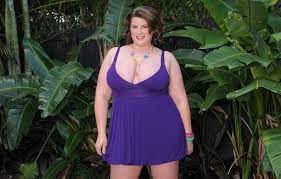Are you tired of struggling to find the right words to conclude your blog articles? Do you wish there was a magical formula that could help you craft powerful and impactful conclusions every time? Well, look no further! In this blog post, we have compiled a list of 10 incredible conclusion starters that will transform your endings from mediocre to magnificent. Whether you’re writing about fashion, technology, or travel, these conclusion starters are guaranteed to leave your readers wanting more. So grab a pen and get ready to perfect the art of wrapping up your blog articles with finesse!
Introduction
A powerful conclusion starter can make all the difference in whether or not your blog article is successful. The right conclusion starter will help to emphasize your key points, while the wrong one can leave your readers feeling confused or uninterested.
When choosing a conclusion starter, consider what you want your reader to take away from your article. Do you want them to remember a specific point? Or are you simply trying to encourage them to keep reading your blog?
Once you’ve decided on your goal, it’s time to choose the right words to get there. Here are some powerful conclusion starters to help you perfect your blog article:
“In summary…”
“To conclude…”
“As we have seen…”
“All in all…”
What is a Conclusion?
A conclusion is the last paragraph of your blog article. It should leave your reader with a strong impression of what you want them to remember about your article. A good conclusion will:
– restate the main idea of your article
– summarize the key points you made in your article
– leave your reader with a strong impression of what you want them to remember about your article
10 Powerful Conclusion Starters
When you’re coming to the end of your blog article, you want to make sure you conclude it in a way that leaves a lasting impression on your reader. You want them to walk away feeling like they’ve learned something valuable, or been entertained in some way. The best way to do this is to start your conclusion with a powerful sentence that will grab their attention and make them think about what they’ve just read.
Here are some great examples of powerful conclusion starters that can help you perfectly wrap up your next blog article:
“In conclusion,…”
“To sum up,…”
“All in all,…”
“As we can see,…”
“Ultimately,…”
– To Summarize
When you reach the end of your blog article, you want to leave a lasting impression on your reader. The conclusion is your last chance to do this, so it’s important to make it count.
There are a few different ways to start your conclusion, but we’ve compiled a list of some of the most powerful conclusion starters to help you finish strong.
- To Summarize:
Start by quickly summarizing the main points of your article. This will help remind your readers of what they just read and give them a good foundation for what you’re about to say in your conclusion.
- In Conclusion:
This is a classic way to start a conclusion and it works well if you’re looking to keep things simple. By starting with “in conclusion,” you let your readers know that you’re about to wrap things up and give them a summary of what they just read.
- All Things Considered:
This phrase is similar to “in conclusion,” but it has a bit more weight to it. “All things considered” implies that you’ve taken everything into account and that you’re now giving your final thoughts on the matter. This is a great way to show that you’re an authority on the subject and that your opinion carries weight.
- When It’s All Said and Done:
This phrase is another way of saying “all things considered.” It
– In Closing
In closing, we’ve compiled a list of powerful conclusion starters that will perfectly wrap up your blog article. These include:
- To sum up
- In conclusion
- All things considered
- In closing
- Finally
- Last but not least
– In Summary
When you’re ready to conclude your blog article, you want to leave your readers with a strong impression. You want them to remember what they read and be eager to share it with others. To do this, you need a powerful conclusion starter.
Here are some great options:
“In conclusion…”
“To sum up…”
“As we have seen…”
“All things considered…”
Each of these starters will grab your reader’s attention and let them know that you’re about to wrap up the article. They also set the tone for a strong finish. So choose one that fits the overall tone of your article and get ready to wow your readers!
– Ultimately
The goal of any conclusion is to sum up the main points of your article and leave your reader with a strong final impression.
A powerful conclusion starter can help you do this by driving home the main point of your article or offering a call to action that encourages your reader to take action.
Here are some powerful conclusion starters that you can use to wrap up your next blog article:
– All Things Considered
No matter what you’re writing about, your goal is to keep your reader engaged until the very end. That’s why it’s important to have a strong conclusion that leaves a lasting impression.
There are a few different ways you can go about wrapping up your article. Here are some powerful conclusion starters to help you finish strong:
- All things considered, _____ is an important issue/topic/subject.
- In conclusion, _____ is an important factor to consider when discussing _____.
- To sum up, _____ is an important element of _____.
- Ultimately, _____ is what it all comes down to.
– As Shown Above
As we know, the conclusion is the last section of your blog article. And just like the introduction, it needs to be strong to make a lasting impression on your reader.
A good conclusion starter will help you sum up your thoughts while leaving a lasting impression on your reader. Here are some powerful conclusion starters that you can use to perfectly wrap up your blog article:
“In conclusion…”
“To sum up…”
“All in all…”
“Overall…”
“As a result…”
“Therefore…”
– To Conclude
To conclude, here are some powerful conclusion starters to perfectly wrap up your blog article:
-In short
-In conclusion
-All in all
-To sum up
-Lastly
– In the End
In the end, it’s important to remember that your blog is a reflection of you and your brand. Take the time to proofread and edit your work before hitting publish. By taking these extra steps, you’ll ensure that your blog article leaves a lasting impression on your readers.
– Lastly
When it comes to writing a conclusion for your blog article, you want to make sure you end on a strong note. Here are some powerful conclusion starters that will perfectly wrap up your article:
- To sum up…
- In conclusion…
- All in all…
- Overall…
- As a result…
– Looking Ahead
When you’re writing a blog article, it’s important to end on a strong note. A powerful conclusion starter can help you do just that. Here are some of our favorites:
“In conclusion,”
“To sum up,”
“All things considered,”
“Taking everything into account,”
“On the whole,”
“Altogether,”
“In summary,”
“To summarize,”
“Ultimately,”
“In the final analysis,”
These phrases will help you transition smoothly into your conclusion and leave your readers with a strong impression.
Examples of Conclusion Starters in Action
If you’re looking for some inspiration on how to start your conclusion, look no further! Here are four examples of conclusion starters in action:
“I believe that…”
“To sum up, I would say that…”
“All things considered, I think it’s safe to say that…”
“When all is said and done, I think the most important thing is…”
Common Mistakes to Avoid When Writing a
When it comes to writing a powerful conclusion for your blog article, there are a few common mistakes that you’ll want to avoid. Here are some of the most common mistakes to avoid:
1. Not Summarizing Your Main Points
When you’re writing a conclusion, it’s important to briefly summarize the main points that you covered in your article. This will help remind your readers of what they’ve just read, and it will give them a clear understanding of what your article was about.
2. Being Too Wordy
Your conclusion should be concise and to-the-point. There’s no need to include unnecessary details or filler words. Keep your conclusion short and sweet, and get straight to the point.
3. Repeating Yourself
When you’re writing a conclusion, resist the urge to repeat yourself. repeating yourself will only make your article seem repetitive and boring, and it won’t do anything to further engage your readers. Instead, focus on providing new information or insights that will leave a lasting impression on your readers.
4. Making It All About You
Your conclusion should not be all about you or your blog. While it’s okay to promote yourself a little bit, don’t make the entire focus of your conclusion be about how great you are or how much people should read your blog. Instead, focus on providing value to your readers and leaving them with something useful or insightful that they can take away from your article.
Read more articles!













